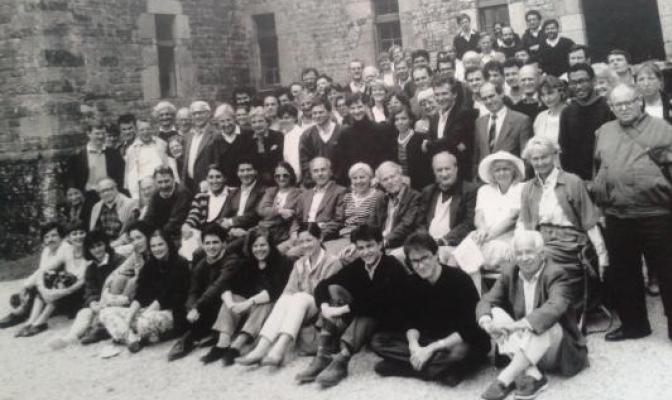A visual history of CSO

 Colloquium of Cerisy in 1990
Colloquium of Cerisy in 1990
The key moments in the CSO’s history can be found here in two documents which show :
The growth and changes of the CSO team
This graph shows the makeup of the research /composition de l’équipe (PDF, in french 57Ko) from 1964 to 2014.
It started out as a small group centered around Michel Crozier in the 1960s, and then reached a stable size in the beginning of the 1980s, with the departure of some researchers being compensated by the arrival of others. In the 1990s, the team grew with the arrival of three researchers, two of which would later become CSO directors. The latter are among the last CSO researchers who also completed their dissertations at the CSO. Starting in the 2000s, as the founding generation of the CSO began to retire, the organization began to open up, resulting in the current team. The research center doubled in size over this period (11 researchers in 2000, 22 in 2014) and became more diverse, and it gained the help of an administrative team of 6 structured around a general secretariat.
The noteworthy events in its history
Ten diagrams of ten representative years /dix années représentatives (PDF, in french 700Ko) of the CSO’s history.
Each year is recounted via a selection of significant events, set in context. This information is by no means exhaustive, but some subjects are shown over the course of several years: the construction of the CSO, the actions of its founder and his successors, the evolution of the research topics, the development of a teaching program for sociology, the role of institutions and external actors, and the work of young researchers.
A document which tracks the evolution of our research topics will soon be online, shown through the network of CSO researchers and PhD students.
This document shows the lifespan of different research topics, their abandonment or renewal, the contribution of new researchers, the role of PhD students in field studies, as well as the links between researchers and the cross-cutting nature of the research topics.









